The specter of ShotSpotter rose once again on Wednesday, when 17th Ward alderperson David Moore introduced legislation that would give the police superintendent control over negotiating a new contract for gunshot-detection technology or extending ShotSpotter’s existing agreement with the City.
Moore introduced the measure amid a flurry of new business near the end of the City Council meeting. The legislation would direct the CPD superintendent to negotiate a gunshot-detection technology contract and potentially revive ShotSpotter, which Mayor Brandon Johnson promised to sunset by the end of November. The measure failed when 6th Ward alderperson William Hall sent it to the Rules Committee, a parliamentary maneuver that stalls or often kills bills. Upon hearing that another alder scuttled his legislation, Moore shot up in his seat and demanded to know who was responsible. As he searched the room, other alders exchanged looks, with some half-jokingly saying it wasn’t them.
Following the meeting, Moore’s tone was cordial, even if his response to reporters who asked if he’d retaliate against Hall carried a veiled threat.
“I don’t do retaliation. If you want to use the word ‘retaliate,’ what people are going to learn is not to mess with David Moore,” he said. “In politics, no permanent friends, no permanent enemies, just permanent interest. My interest is keeping the citizens of Chicago and specifically the residents of 17th Ward safe.”
Last month, Moore told reporters he’d blocked housing legislation sponsored by 1st Ward alderperson Daniel La Spata in response to La Spata stalling another of Moore’s bills in May.
Read the WEEKLY’s multipart investigation of ShotSpotter in Chicago
Missed Shots
Hall characterized Moore’s proposal as a last-minute attempt to circumvent the mayor’s authority on a city contract.
“It was something that colleagues didn’t have a chance as a collective to review. Secondly, it’s passive aggressive politics,” Hall said. “In it, there’s the opportunity to move past the mayor with something that’s very serious, such as safety, which is a priority for all fifty of us. A priority for the mayor.”
ShotSpotter landed in Johnson’s crosshairs during his mayoral campaign, when he pledged to end the City’s contract with the controversial gunshot-detection technology company. Since the City first inked its contract with ShotSpotter in 2018, Chicago taxpayers have shelled out over $53 million for it. In 2021, the City’s Inspector General found that ShotSpotter’s alerts rarely lead to evidence of a gun-related crime. In February, a monthslong investigation by the Weekly discovered that CPD reported hundreds of missed shootings to ShotSpotter.
Moore’s proposed ordinance called on the police superintendent and the City Hall’s corporation counsel to negotiate and execute a contract extension, renewal or new contract for acoustic gunshot detection technology. That contract would last at least two years and would ensure there is no gap in service.
Lobbyists for ShotSpotter’s parent company, SoundThinking, helped craft the proposed legislation. “We’ve been working in conjunction, together, on this,” Moore said of partnering with the company on the new ordinance.
In a statement to the Weekly, SoundThinking threw its support behind Moore’s measure.
“We remain committed to serving the citizens of Chicago and helping the Chicago Police Department save lives and fully support the endeavor of the aldermen to secure an extension of gunshot detection services for the citizens of Chicago,” said Gary Bunyard, senior vice president of corporate development at SoundThinking.
Moore’s proposal marks his latest effort to keep ShotSpotter in Chicago. In a 34-14 vote in May, alders approved Moore’s measure that would notify City Council members of any decision to remove violence-prevention funding, including ShotSpotter, and would require a full Council vote before removal. The Reader reported that emails showed Moore had also worked with ShotSpotter lobbyists on that legislation.
That same order required CPD to post data, including response times to shootings and the number of arrests resulting from a ShotSpotter alert, to a city portal. On Wednesday, Moore and 29th Ward alderperson Chris Taliaferro, a proponent of ShotSpotter who chairs the Committee on Police and Fire, expressed frustration that CPD has yet to post that data nearly two months after they passed the legislation.
“The data is in the review phase,” said CPD spokesman Tom Ahern, who added that the data will be posted on CPD’s dashboard. “I don’t know exactly when, I’m being told that it’s forthcoming.”
CPD declined to comment on Moore’s proposal, citing departmental policy on not commenting on pending legislation.
RELATED STORY
Which Wards Have ShotSpotter?
During a press conference with reporters following the City Council meeting, Johnson brushed off Moore’s statement that he had the votes to push through his latest ordinance.
“ShotSpotter has been canceled. It’s been canceled,” Johnson said. “The effort should really be: how are we making sure we’re building a better, stronger, safer Chicago?”
The mayor’s response echoed his retort to Moore’s successful effort in May. Johnson threw cold water on that measure, telling reporters at the time that the ordinance didn’t make sense and that the executive branch held authority over negotiating contracts.
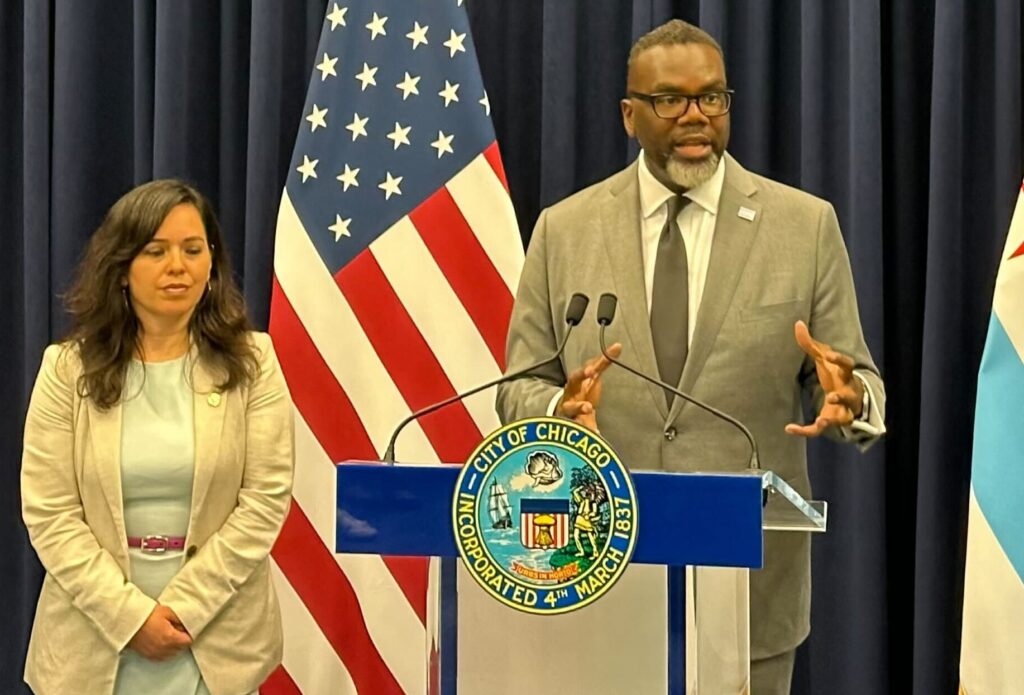
During Wednesday’s meeting, the City Council approved an $11.25 million settlement to twelve women who failed a “discriminatory” physical test after being hired as paramedics by the Chicago Fire Department. The Council also passed an ordinance imposing fines of up to $1,000 for posting flyers containing hate speech, and sent an proposed ordinance lowering the citywide speed limit to 25 mph to the Rules Committee.
Mayor Johnson caught flak during the meeting from alders on his decision to appoint 25th Ward alderperson Byron Sigcho-Lopez to the powerful Zoning Committee chairmanship. The seat has been vacant since 35th Ward alderperson Carlos Ramirez-Rosa resigned in November following accusations that he bullied 37th Ward alderperson Emma Mitts.
But Johnson’s pick to replace Ramirez-Rosa has drawn criticism from his colleagues as well. Sigcho-Lopez has stirred controversy in recent months after appearing at a protest against U.S. support of Israel’s bombing campaign in Gaza where demonstrators had burned an American flag. That incident prompted some alders to call a vote in April that would have stripped Sigcho-Lopez of his Housing Committee chairmanship, though the measure ultimately failed, 16-29.
On Wednesday, 42nd Ward alderperson Brendan Reilly stalled the appointment by calling attention to a parliamentary rule requiring at least thirty-four votes to install Sigcho-Lopez. Ahead of that expected vote, Reilly passed out paper copies of the rule printed in large font to each alder. That display may have been enough to quell 8th Ward alderperson and Rules Committee Chair Michelle Harris, who withdrew the vote.
Despite the retreat, Johnson stood by his pick of Sigcho-Lopez for Zoning chair.
“You’re talking about someone who has fought against gentrification throughout the entire city of Chicago, someone who is supportive of development in Black and Brown communities for affordable homes, public housing and social housing,” he said. “Who do you want fighting for affordable housing and development in this city? Someone who believes that housing is a human right, someone who believes that economic development should be focused in the neighborhoods and people who have been harmed the most.”
Leigh Giangreco is a freelance reporter based in Chicago. You can follow her work on Twitter @LeighGiangreco and on her website at leighgiangreco.com.

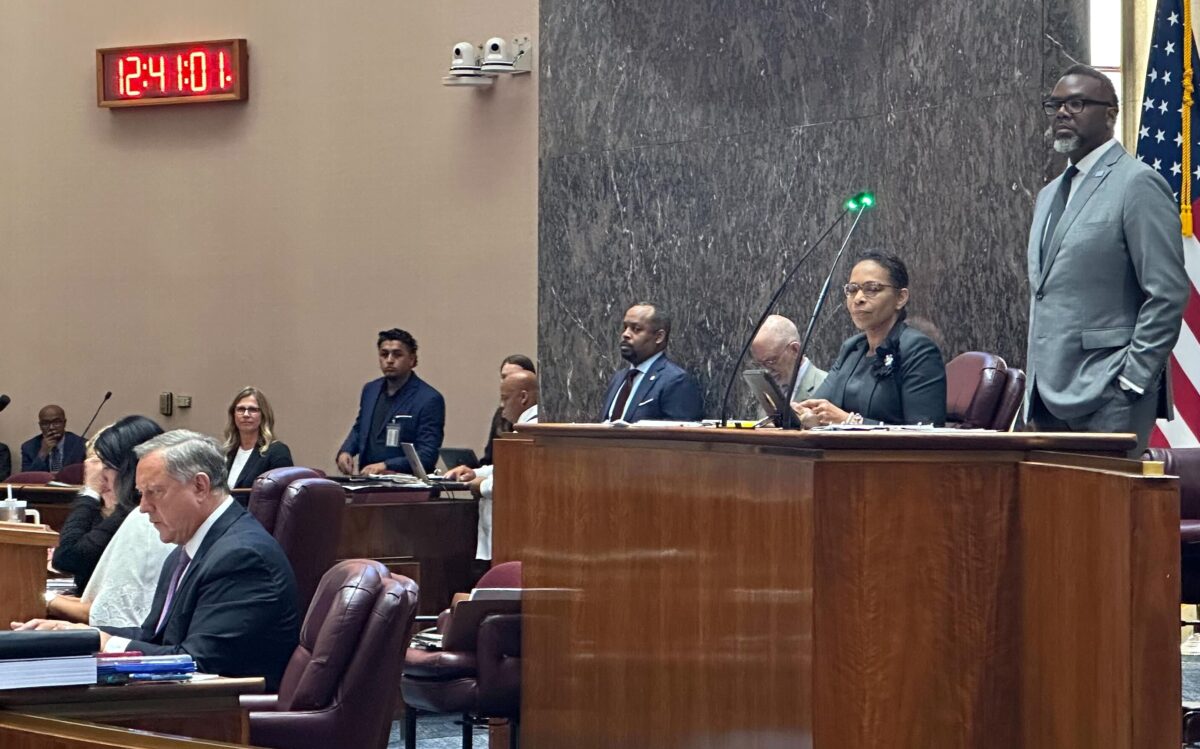

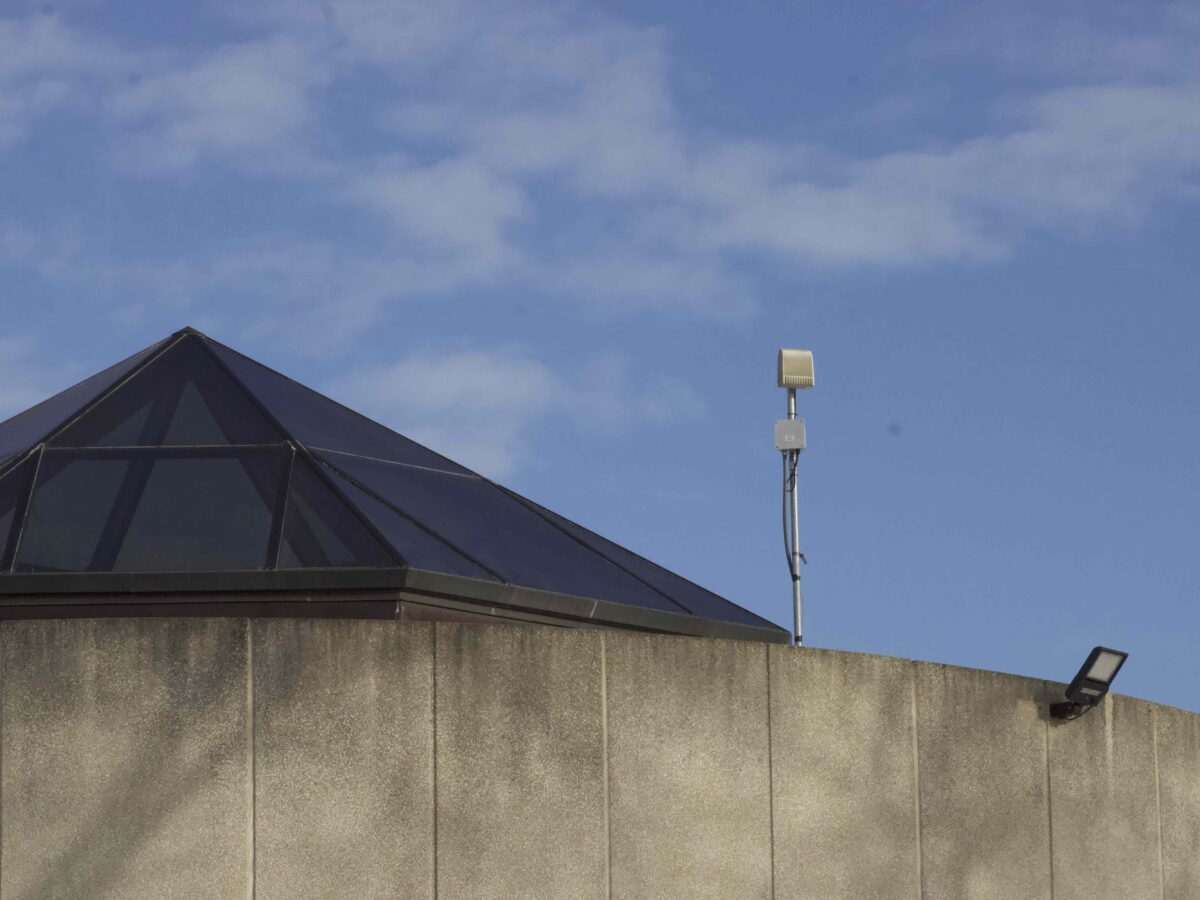
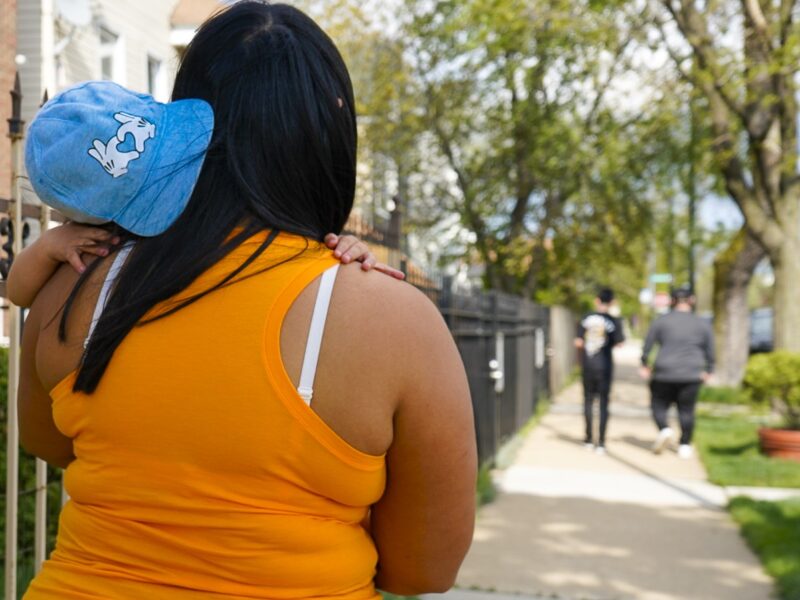
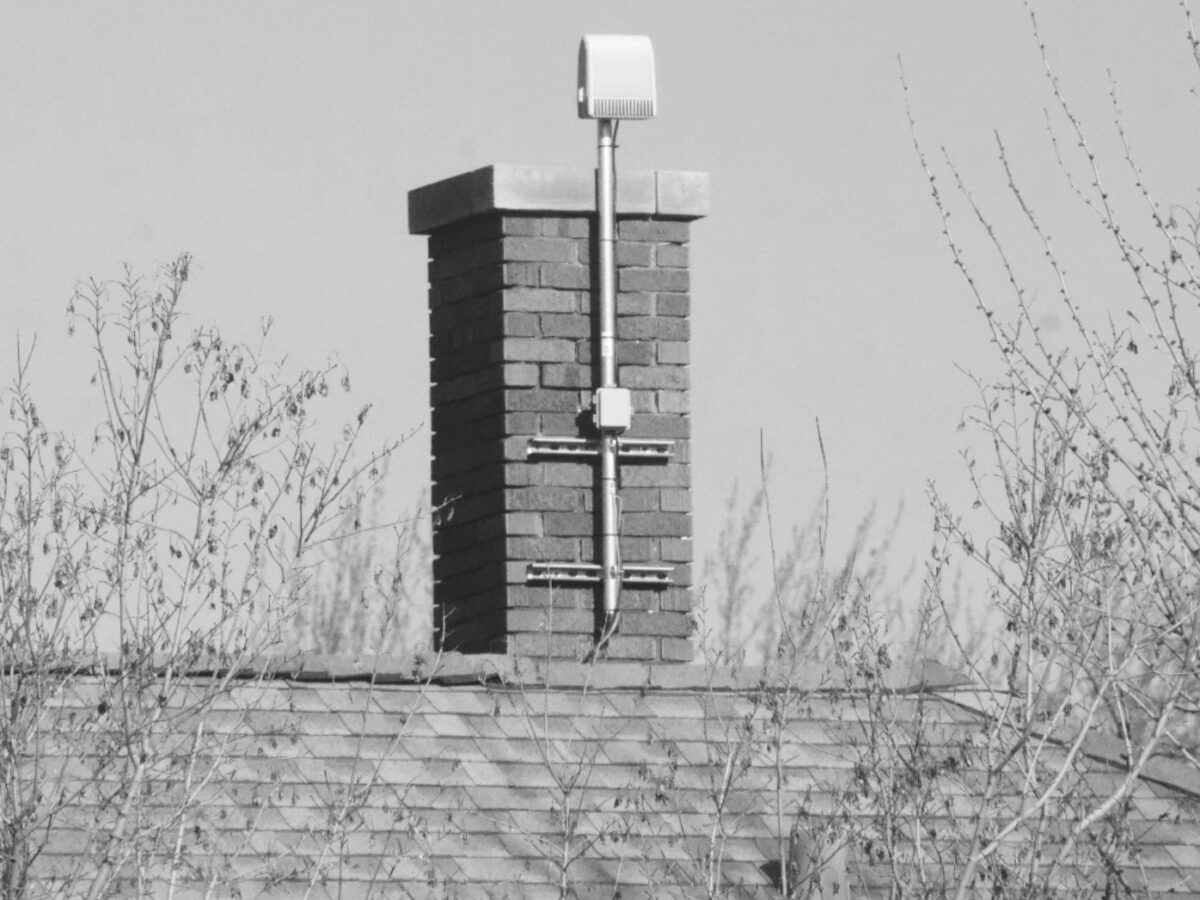
Moore is a certifiable idiot